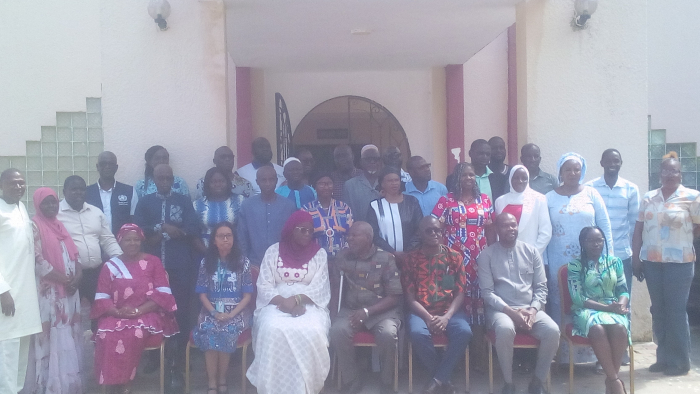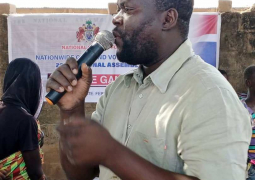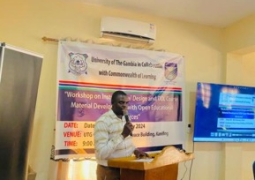
The event held at Ocean Bay, Cape Point, seeks to strengthen and prepare the country’s immunisation services ahead of any emergency cases.
In his welcoming address, Sidat Fofana, programme manager of the Expanded Programme on Immunization (EPI) at the Ministry, expressed delight to receive the team from WHO to orient members of the Gambia National Immunization Technical Advocacy Group.
He spoke highly of the country’s track record in immunisation services, recalling that The Gambia has led the introduction of new vaccines over the past three decades.
"Definitely requires a very strong NITAG and that is why today we are able to have this group here from AFRO to come and orientate us. The NITAG has been in existence since, but over the course of the past three years to four years, we all know the COVID has done some disruptions and also followed by the outbreaks of CVDB in the country. That has definitely derailed, especially the programme. "
Fofana explained that NITAG has been following developments but in view of the fact that the program has been involved in these two campaigns, they realize a slow-down of activities.
"This also coincided with the assessment done internally with our NITAG team."
The EPI Programme manager spoke about the gains made in in the introduction of series of vaccines, adding that they are also thinking of other new vaccines for malaria, like the Hexa.
He thus thanked their partners like WHO and UNICEF for always being there, pushing to ensure that at least whatever they need as a government or as a program is achieved.
Dr. Nathan Bakyaita, country representative of the World Health Organization (WHO), on behalf of the United Nations country team, extended deep appreciation to the Ministry for their continued commitment to safeguarding the health of every Gambian through evidence-based immunisation policies.
"Your dedication is highly commended. NITAG plays a pivotal role in translating global guidance into local relevant strategies and policies. Your work ensures that immunization decisions are not only scientifically sound, but also contextually grounded, responsive to the realities of our communities, health systems, and of course the epidemiological landscape. "
He recalled that since the establishment of EPI program in 1979, a time when the country had six traditional antigens, adding that fast forward in 2025, the country has moved up to about 14 and this could not have been happening, without the role of the NITAG.
Declaring the forum open, Dr. Alieu Sowe from the Ministry of Health, on behalf of the Ministry who thanked the organising team for this very important meeting, also spoke about the successes registered by the country when it comes to immunisation.
Dr. Sowe reminded that The Gambia was the first country to prove that measles transmission could be interrupted through vaccination and that was in 1967, noting that since then a lot has been registered.
"In the 1970s, for example, the under-five mortality rate was more than 300 per thousand, and today it is much less than that. And vaccination has a lot to contribute to this success," he stated.
He highlighted the role of the National Immunization Technical Advisory Groups in strengthening immunisation services in any country, pointing out that technical experts from different areas give the best available evidence that can be used to drive immunisation programs to achieve the best outcomes. "And this requires a lot of dedication, and this we have seen. "





